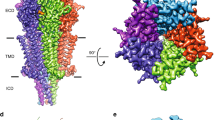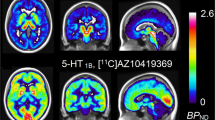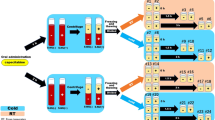Abstract
The metabolism of serotonin was studied in cancer patients of their first day of their first course of chemotherapeutic drugs either with strongly or moderately emetogenic regimens. It was observed that strongly emetogenic treatments induce greater increases in serotonin release than moderately emetogenic regimens. High-dose cisplatinum (75 +/- 5 or 83.8 +/- 5 mg m-2) produced a marked increase in the plasma levels and in the urinary excretion of 5-hydroxyindole acetic acid (5-HIAA). Neither platelet nor plasma (platelet-free plasma) serotonin were significantly modified by high-dose cisplatinum. Dacarbazine (283 +/- 22 mg m-2), another strongly emetogenic agent, induced acute nausea and emesis paralleled by marked increases in the urinary excretion of 5-HIAA. Both for high-dose cisplatinum and dacarbazine, the increases in serotonin metabolism occurred with a similar time-course than those of vomiting, and lasted for a period of 4 to 8 h. Low-dose cisplatinum (30.8 +/- 3 mg m-2) as well as cyclophosphamide-based chemotherapies (520 +/- 30 mg m-2) produced very small increases in the urinary excretion of 5-HIAA. Platelet and plasma serotonin levels failed to increase in cyclophosphamide-treated patients. Octreotide, a long-acting somatostatin analog, did not inhibit the increase in urinary 5-HIAA and the nausea and vomiting produced by high-dose cisplatinum. These results suggest that for treatments that induce marked increases in serotonin release such as high-dose cisplatinum or dacarbazine: (a) the amount and time course of serotonin release induced by chemotherapeutic drugs determines the severity, time of onset and pattern of emesis observed; (b) platelet serotonin play no role in chemotherapy-induced emesis; (c) strongly emetogenic regimens release serotonin from enterochromaffin cells; and (d) intestinal release of serotonin is the consequence of the damage induced by the chemotherapeutic drugs on the gut mucosa.
This is a preview of subscription content, access via your institution
Access options
Subscribe to this journal
Receive 24 print issues and online access
$259.00 per year
only $10.79 per issue
Buy this article
- Purchase on Springer Link
- Instant access to full article PDF
Prices may be subject to local taxes which are calculated during checkout
Similar content being viewed by others
Author information
Authors and Affiliations
Rights and permissions
About this article
Cite this article
Cubeddu, L., Hoffmann, I., Fuenmayor, N. et al. Changes in serotonin metabolism in cancer patients: its relationship to nausea and vomiting induced by chemotherapeutic drugs. Br J Cancer 66, 198–203 (1992). https://doi.org/10.1038/bjc.1992.242
Issue Date:
DOI: https://doi.org/10.1038/bjc.1992.242
This article is cited by
-
Hypophagia induced by hindbrain serotonin is mediated through central GLP-1 signaling and involves 5-HT2C and 5-HT3 receptor activation
Neuropsychopharmacology (2019)
-
Theoretical evaluation of antiemetic effects of 5-HT3 receptor antagonists for prevention of vomiting induced by cisplatin
European Journal of Drug Metabolism and Pharmacokinetics (2015)
-
Drosophila modifier screens to identify novel neuropsychiatric drugs including aminergic agents for the possible treatment of Parkinson’s disease and depression
Molecular Psychiatry (2014)
-
Fall in plasma ghrelin concentrations after cisplatin-based chemotherapy in esophageal cancer patients
International Journal of Clinical Oncology (2012)
-
Aprepitant for prevention of nausea and vomiting secondary to high-dose cyclophosphamide administered to patients undergoing autologous peripheral blood stem cells mobilization: a phase II trial
Supportive Care in Cancer (2012)



